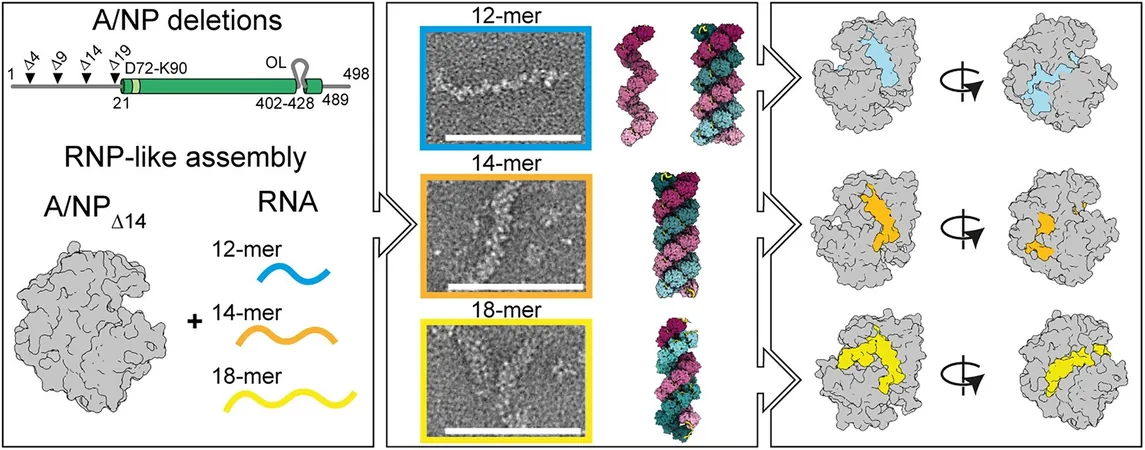
Canadian Housing Market Thrives as Buyers' Bargains Fade Away
2024-12-17
Author: Charlotte
Canadian Housing Market Surges During Cold Months
A significant transformation is underway in Canada's housing market as traditionally colder months witness an unexpected surge in home sales. The Canadian Real Estate Association (CREA) has reported strong sales figures, with November showing a remarkable 26% increase compared to last year, following a 30% increase in October. While winter has typically heralded a hibernation period for real estate activity, analysts are forecasting a vibrant winter season this year.
Factors Influencing the Uptrend
According to CREA senior economist Shaun Cathcart, several factors are influencing this uptrend. Recent cuts by the Bank of Canada, alongside eased mortgage regulations, have created an atmosphere conducive to home buying. "This year, we might not see the usual pause in market activity as colder weather sets in," Cathcart remarked, hinting at a potentially bustling winter market.
Shifting Market Dynamics
Further, the rising sales figures correlate with a decrease in new listings, tightening the market supply and shifting the balance towards sellers. "In fact, no outright buyers' markets remain among the 23 major cities we track," stated Robert Kavcic, senior economist at BMO Capital Markets.
Home Prices on the Rise
As supply dwindles, home prices are climbing as well. The national average price for November rose 7.4% year-over-year, reaching $694,411. Notably, the MLS Home Price Index saw a robust monthly increase of 0.6%, marking the strongest gain since July 2023. Prices in major markets like Toronto and Vancouver are experiencing the fastest growth seen in over a year, reflecting a renewed investor confidence.
Future Prospects
Looking ahead, experts anticipate continued growth in both sales and prices. With borrowing costs projected to ease further and new government policies in place—such as the introduction of 30-year amortizations for first-time homebuyers and an increase in the insured mortgage cap to $1.5 million—more potential homeowners are likely to enter the market. "There is no longer a logical basis to expect a period of declining home prices leading up to the spring buying season," noted Stephen Brown, deputy chief North American economist at Capital Economics.
Regional Disparities
Despite the overall positive trends, regional disparities remain prominent. While seven out of ten provinces experienced sales increases, three reported declines. Quebec led sales growth with a 5.2% uptick, while British Columbia and Alberta saw gains of 4.9% and 2.9%, respectively. Conversely, Newfoundland witnessed a sharp decrease of 14.5%, and smaller provinces like Nova Scotia and Prince Edward Island also experienced downturns.
Conclusion
As Canadians navigate a challenging economic climate marked by rising inflation and living costs, the real estate market continues to evolve, revealing both opportunities and challenges. In this vibrant landscape, the questions remain: How will these trends affect affordability? And will the dream of homeownership become even more elusive for many as prices soar?
Stay tuned as we monitor these developments—they could reshape the future of home buying in Canada!









 Brasil (PT)
Brasil (PT)
 Canada (EN)
Canada (EN)
 Chile (ES)
Chile (ES)
 España (ES)
España (ES)
 France (FR)
France (FR)
 Hong Kong (EN)
Hong Kong (EN)
 Italia (IT)
Italia (IT)
 日本 (JA)
日本 (JA)
 Magyarország (HU)
Magyarország (HU)
 Norge (NO)
Norge (NO)
 Polska (PL)
Polska (PL)
 Schweiz (DE)
Schweiz (DE)
 Singapore (EN)
Singapore (EN)
 Sverige (SV)
Sverige (SV)
 Suomi (FI)
Suomi (FI)
 Türkiye (TR)
Türkiye (TR)